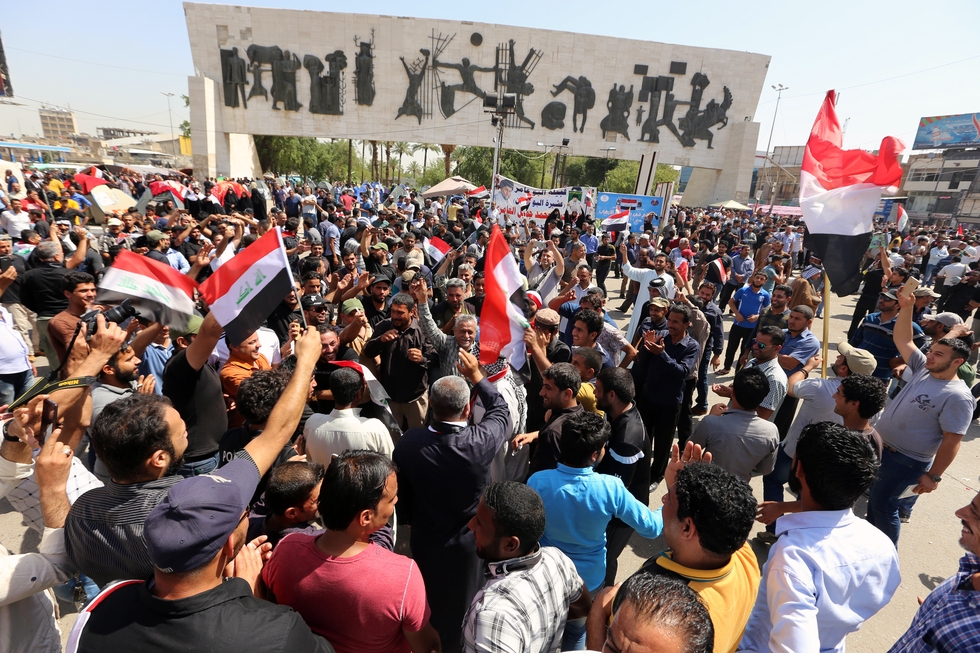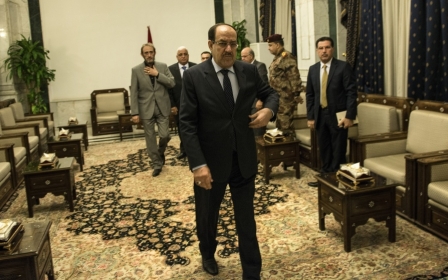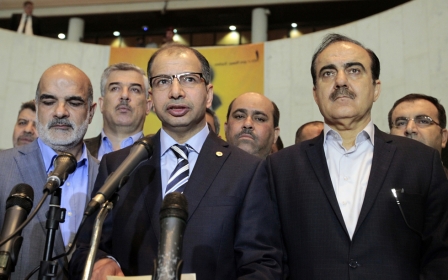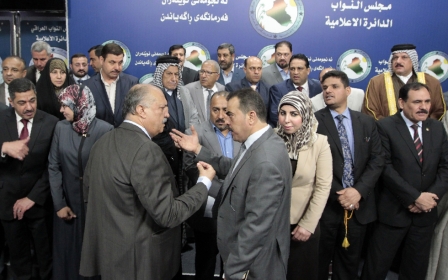Demonstrators hold new Baghdad sit-in demanding reform

Several hundred demonstrators took part in a renewed sit-in in central Baghdad on Sunday to call for reforms, following another that lasted for two weeks last month.
The protesters began gathering at Baghdad's Tahrir Square on Saturday following the failure of a parliamentary session aimed at selecting a replacement for the speaker.
Iraq has been hit by weeks of political turmoil surrounding Prime Minister Haider al-Abadi's efforts to replace the cabinet of party-affiliated ministers with a government of technocrats.
"Our sit-in aims to end the political quotas," said Mohammed Khayoun, one of the participants in the demonstration, referring to senior government positions being shared out among parties.
Imad Shaeet, another participant, said: "Our demands are for reform aimed at securing our future and the future of our children." Security forces closed streets around the sit-in site, causing major traffic jams in the area.
Powerful Shia cleric Moqtada al-Sadr organised a two-week sit-in in March outside Baghdad's heavily fortified Green Zone, where the government is headquartered, but called it off after Abadi presented a new cabinet lineup to parliament.
The premier has faced significant opposition to his cabinet reform efforts from powerful political parties that rely on control of ministries for patronage and funds. Both the United Nations and Washington have warned that the political wrangling could undermine Iraq's fight against the Islamic State (IS) militant group, which overran large areas in 2014 but has since lost significant ground.
Political blocs submitted their own ministerial candidates, leading to a second lineup in which most of Abadi's nominees were replaced. Lawmakers then began a sit-in at parliament, while two subsequent sessions ended in a fistfight and a vote to remove speaker Salim al-Jabouri, overshadowing the cabinet issue.
Jabouri insists the session at which MPs voted to sack him lacked a quorum and that the decision is therefore invalid, but his opponents say the move was legitimate. They attempted to hold a session on Saturday aimed at selecting replacements for Jabouri and his deputies, but it collapsed after 23 MPs from the Shia Badr bloc announced they would not participate, meaning it lacked a quorum.
Abadi's opponents accuse him of undermining democracy and “leading a coup” against Iraq’s power-sharing political structure that has been in place since 2003, which guarantees a certain number of political positions to the country’s Shia, Sunni and Kurdish blocs.
Abadi told Middle East Eye in a phone interview last month that rival political blocs had not responded to his request for them to nominate their preferred independent candidates for cabinet posts last month.
He also said that the call for an independent cabinet had come from Moqtada al-Sadr, the influential Shia cleric who had threatened to raid Baghdad’s fortified Green Zone unless his demands for political reform were met.
"I asked to form a government of technocrats,” Abadi told MEE.
"At the beginning of last month I formally asked the [political] blocs to nominate technocrats who they think are appropriate, but the blocs did not do so," he said.
“It was Sadr who demanded a government of independents, except for the prime minister," Abadi added.
Abadi said he was committed to conducting government business in a professional manner, without interference from either his own or other political blocs.
New MEE newsletter: Jerusalem Dispatch
Sign up to get the latest insights and analysis on Israel-Palestine, alongside Turkey Unpacked and other MEE newsletters
Middle East Eye delivers independent and unrivalled coverage and analysis of the Middle East, North Africa and beyond. To learn more about republishing this content and the associated fees, please fill out this form. More about MEE can be found here.




